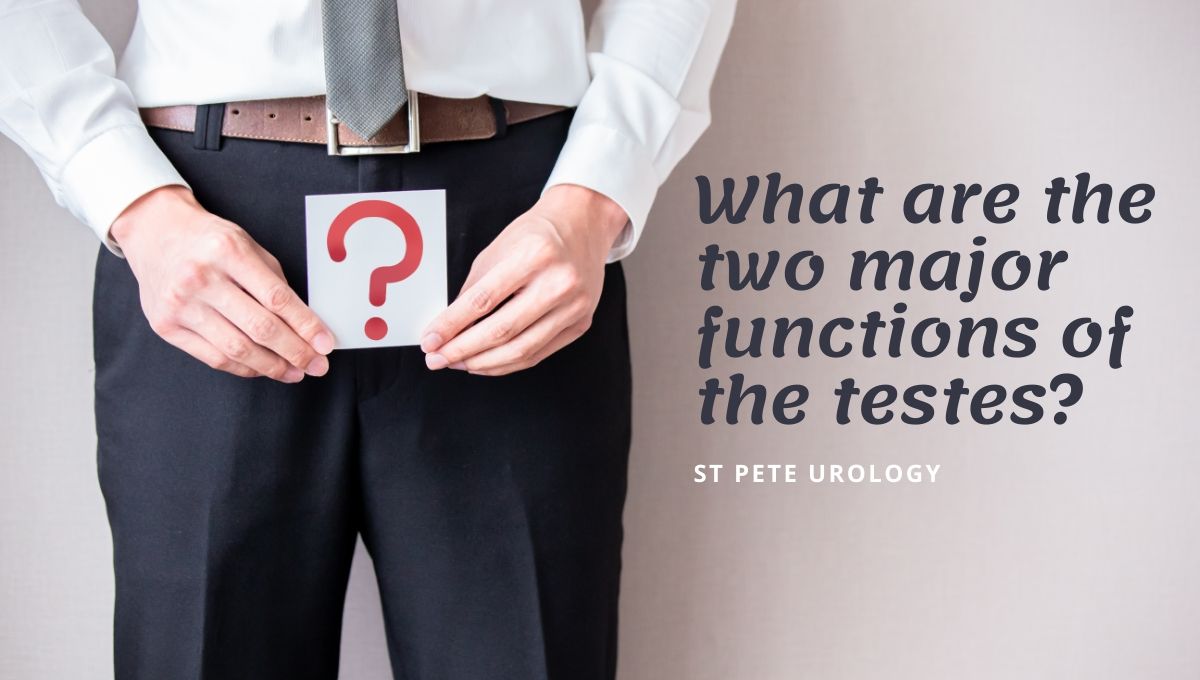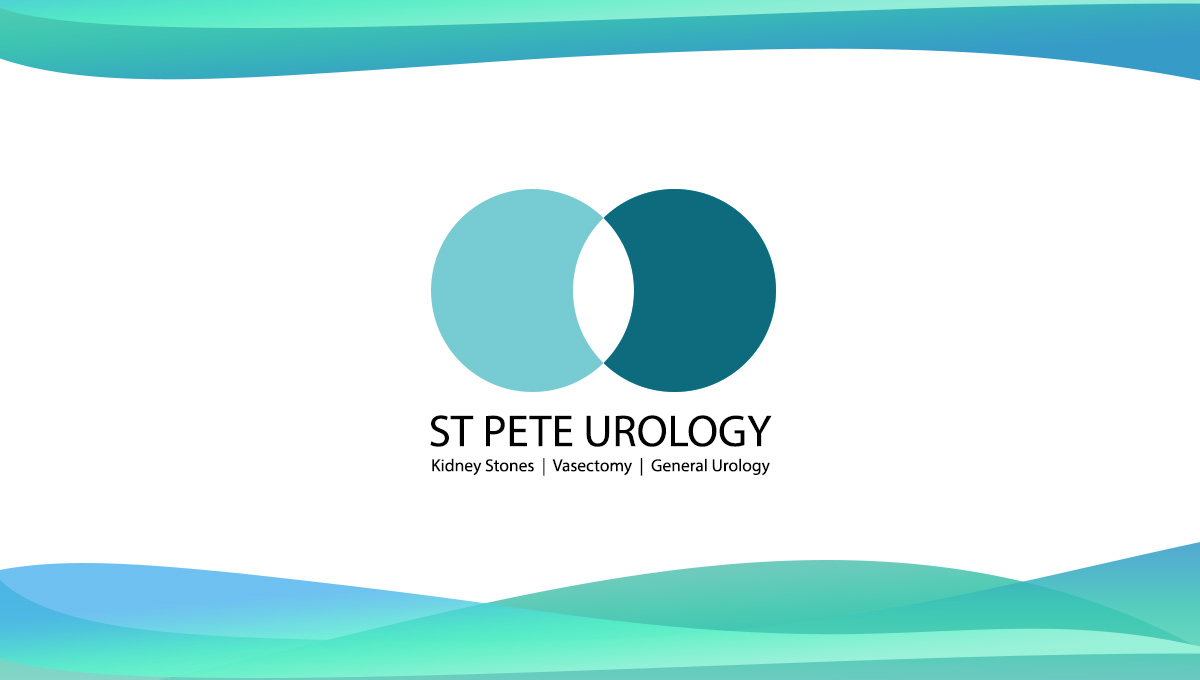Testicular cancer treatment options by stage, plus real recovery timelines, fertility guidance, and local support at St. Pete Urology in St. Petersburg, FL.
Continue readingHow to Recognize Testicular Cancer Symptoms Before It’s Too Late
Learn to identify testicular cancer symptoms early. St Pete Urology explains warning signs, self-exam techniques, and when to seek expert urological care.
Continue readingHow Can You Protect Yourself from Testicular Cancer?
Could Early Diagnosis and Outcomes of Testicular Cancer Treatment Lead to Better Prognosis?
Are You Experiencing Any of the Symptoms of Testicular Cancer?
Are You at Risk of Developing Testicular Cancer?
What are the two major functions of the testes?
 The testicles are the male reproductive organ. These oval-shaped organs are located in the scrotum just below the penis. The testicles have two primary functions: The first is to produce sperm and the second is to produce and discharge hormones, primarily testosterone. These two functions make them an indispensable part of the male reproductive system.
The testicles are the male reproductive organ. These oval-shaped organs are located in the scrotum just below the penis. The testicles have two primary functions: The first is to produce sperm and the second is to produce and discharge hormones, primarily testosterone. These two functions make them an indispensable part of the male reproductive system.
The testicles are continuously making sperm. Male testicles can produce up to 200,000 sperm per minute and can make several million sperm per day. This may seem like an overabundance, but each ejaculation releases anywhere between 20 and 300 million sperm cells, making all that hard work necessary. A full sperm production cycle can take 64 days and in that time the testicles will produce up to 8 billion sperm.
Androgens, the hormones produced in the testicles, play an important role in many aspects of a man’s life. These hormones control the development of masculine features. For instance, deeper voice and beard hair growth can be linked to androgens. The hormone called testosterone also plays a vital role in male reproduction. Testosterone drives genital growth and the sperm production that takes place in the testicles.
Maintaining good health is important to ensuring the testicles are able to perform their functions properly. Evidence shows that poor health can lead to lower sperm counts and weakened testosterone production. Some research shows that male infertility increases by 10 percent for every 20 pounds that a man is overweight. Unhealthy lifestyle factors like smoking, heavy drinking and stress can also affect the testicles’ ability to perform their functions.
Given the importance of testicle functions, it is important to pay attention to the diseases and conditions that occur in them. One of the most serious conditions is testicular cancer. This cancer is tends to affect younger men between 15 and 34 years of age, and although it is not common, it is important to be aware of it and check one’s testicles somewhat regularly. According to the American Cancer Society, about 410 deaths a year in the United Stated will be caused by this form of cancer.
Because the testicles are a part of the male reproductive system, a urologist is the doctor to see if any symptoms arise that indicate a problem. Men who have health concerns can make and appointment at St Pete Urology and meet a highly skilled uologist who is dedicated to improving reprouctive health and quality of life for his patients.
Common Symptoms of Testicular Cancer
Testicular cancer refers to the cancer of the testes (testicles), which are found within the scrotum, a loose bag of skin located underneath the penis. The principal function of the testes is production of sex hormones and sperm in men. Testicular cancer is relatively rare when compared to other types of cancer, but it is the most frequent type of cancer in American males between 15 and 35 years old. The cancer is highly curable and can effectively be treated even after it has spread outside the testicle. Nevertheless, a man may need to receive several treatments or a combination of treatments, depending on the stage and type of testicular cancer.
Testicular cancer symptoms
Testicular cancer is usually unclear from the symptoms because it shares many symptoms with other problems such as epididymitis and hydrocele. Therefore, it is important to see a doctor as soon as possible to have your condition diagnosed so that testicular cancer can either be detected or ruled out. Do not wait.
The most common symptom of testicular cancer is a lump in or on one or both testicles. The testicle may become larger or swollen, and it is normal for one of the testicles to be larger or to hang lower than the other. Testicular cancer may cause pain, but most often the condition is painless. Men having the cancer also may experience a heavy feeling, pressure or aching in the scrotum or in the lower belly.
Symptoms of advanced testicular cancer
If testicular cancer is not diagnosed early, it may spread (metastasize) beyond the testicles and reach other parts of the body, including regional lymph nodes and organs. The type of symptoms caused by the spread of testicular cancer depends on the area of the body that has been affected. In fact, even after spreading to various parts of the body, testicular cancer may still show no symptoms. Symptoms that may occur after the cancer has spread include:
- Lower back pain: May occur when testicular cancer has spread to lymph nodes found in the back of the abdomen (belly).
- Belly pain: May occur when testicular cancer has spread to the liver or when affected lymph nodes have enlarged.
- Coughing, chest pain or shortness of breath: May occur when testicular cancer has spread to the lungs.
- Headaches or confusion: May occur when the cancer has spread to the brain.
- Sweating for no apparent reason, fever, lack of energy, or a general feeling of sickness.
- Breast swelling or nipple tenderness: Occurs rarely but may be caused by the production of hormones due to the cancer.
When should you see a doctor?
Make sure to see a urologist as soon as you detect swelling, lumps or pain in your testicles or in the groin area, particularly if these signs last longer than 2 weeks. Remember that these signs and symptoms may be caused by other conditions that are not testicular cancer. So it is always important to have your doctor check them and advise you accordingly. At St Pete Urology in St Petersburg, Fl, we have treated testicular cancer for many years and have the experience and expertise to diagnose and treat the cancer effectively. We cure most testicular cancers regardless of whether or not they have spread to other areas of the body. For more information on testicular cancer, visit the “St Pete Urology” site.

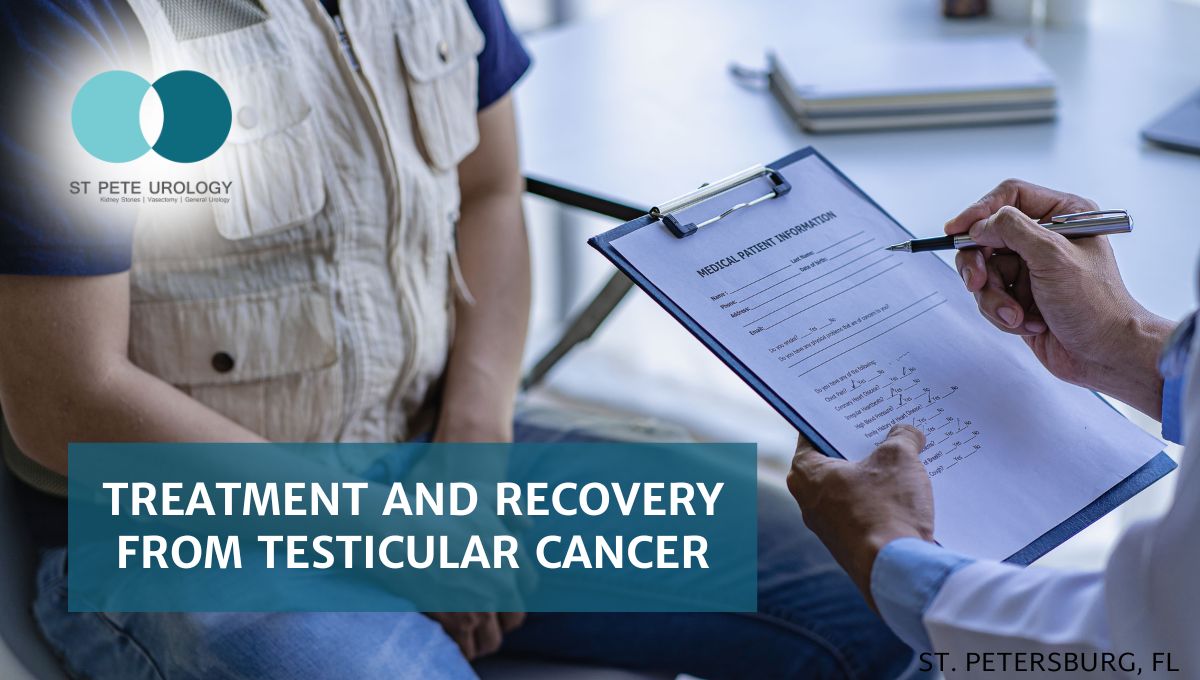
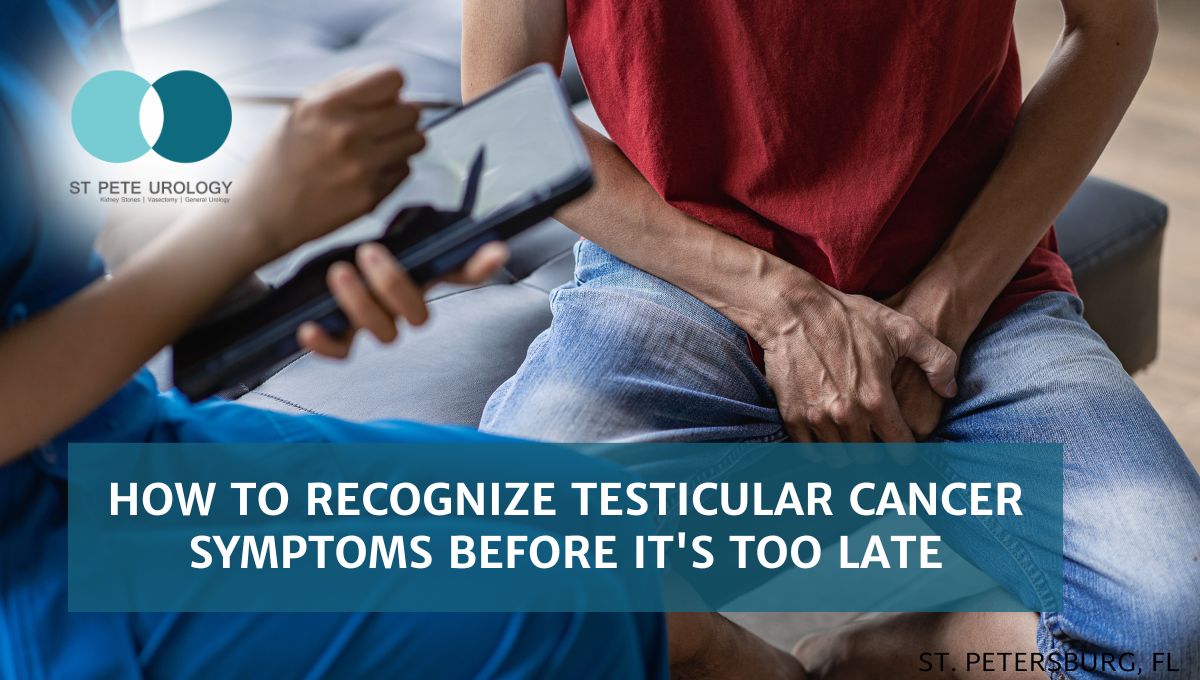
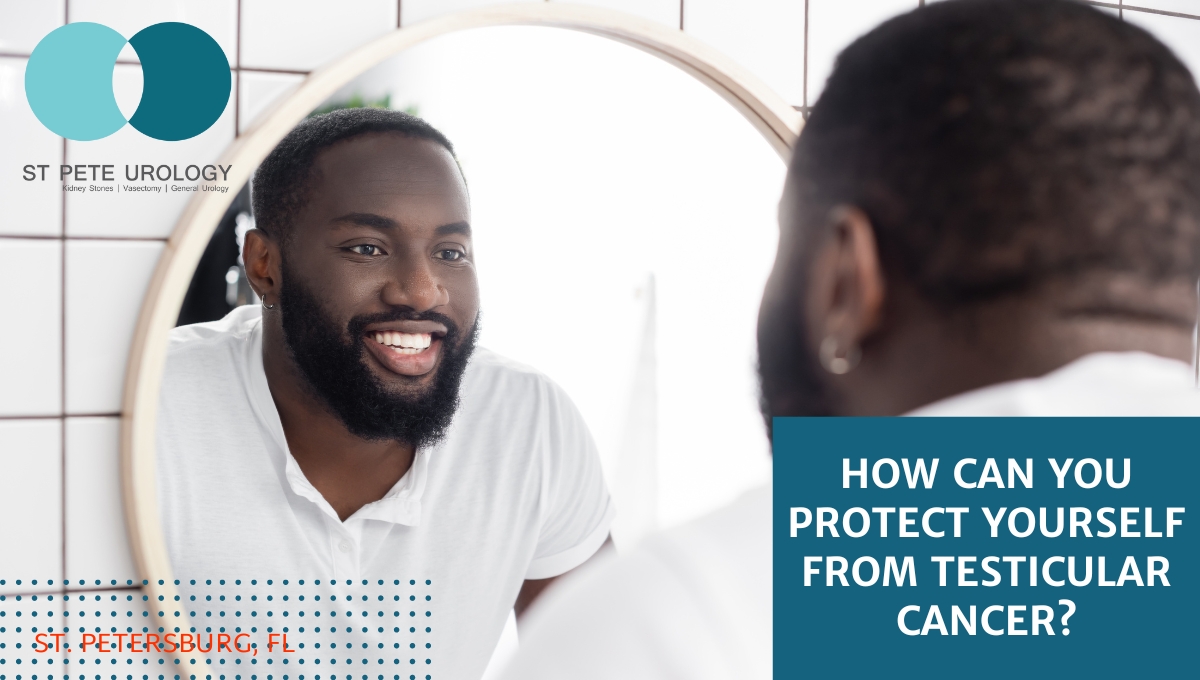
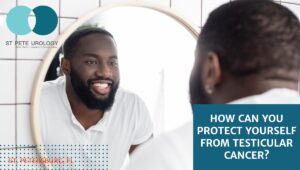 Testicular cancer is thought to be one of the most curable forms of cancer, and early detection is key. Unfortunately,
Testicular cancer is thought to be one of the most curable forms of cancer, and early detection is key. Unfortunately, 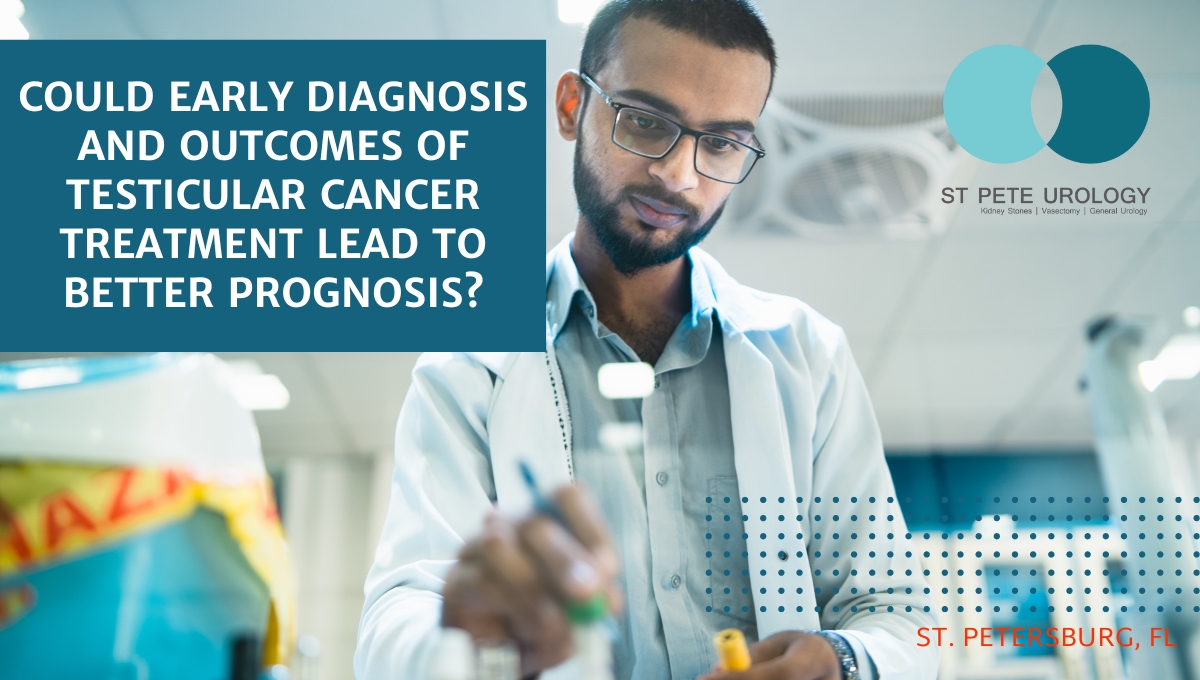
 Testicular cancer
Testicular cancer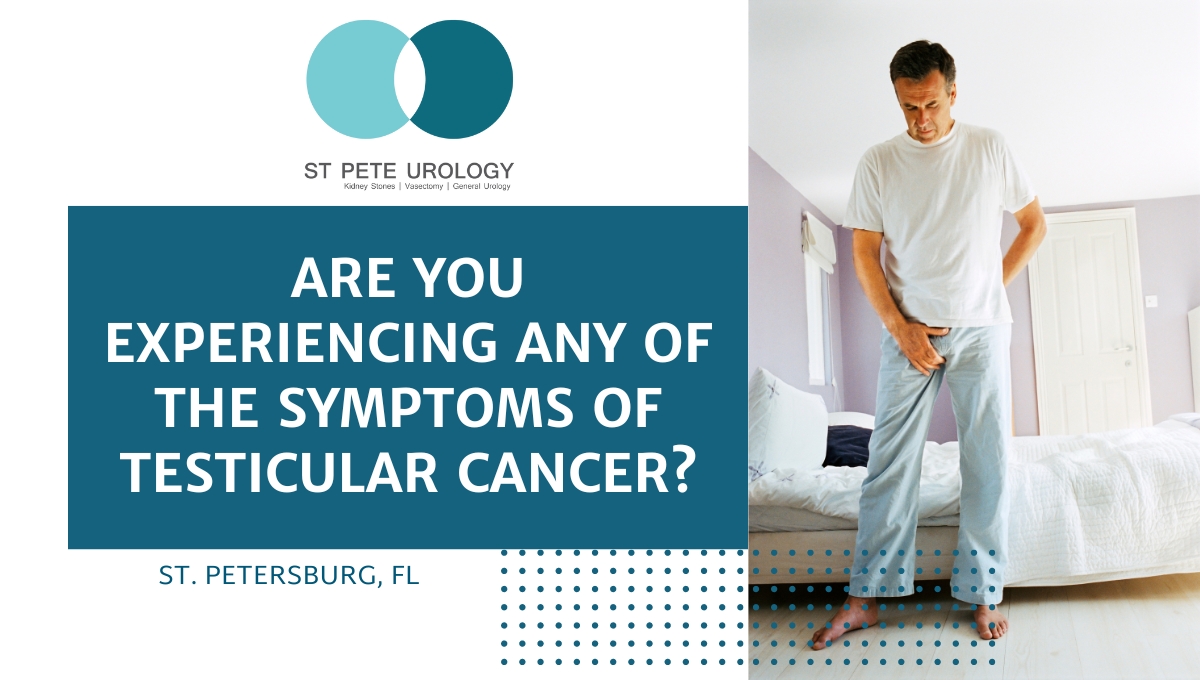
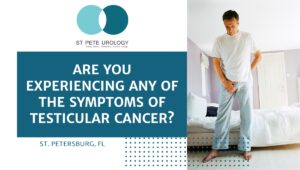 Are you experiencing any of the symptoms of
Are you experiencing any of the symptoms of 
 Are you at risk of developing
Are you at risk of developing 